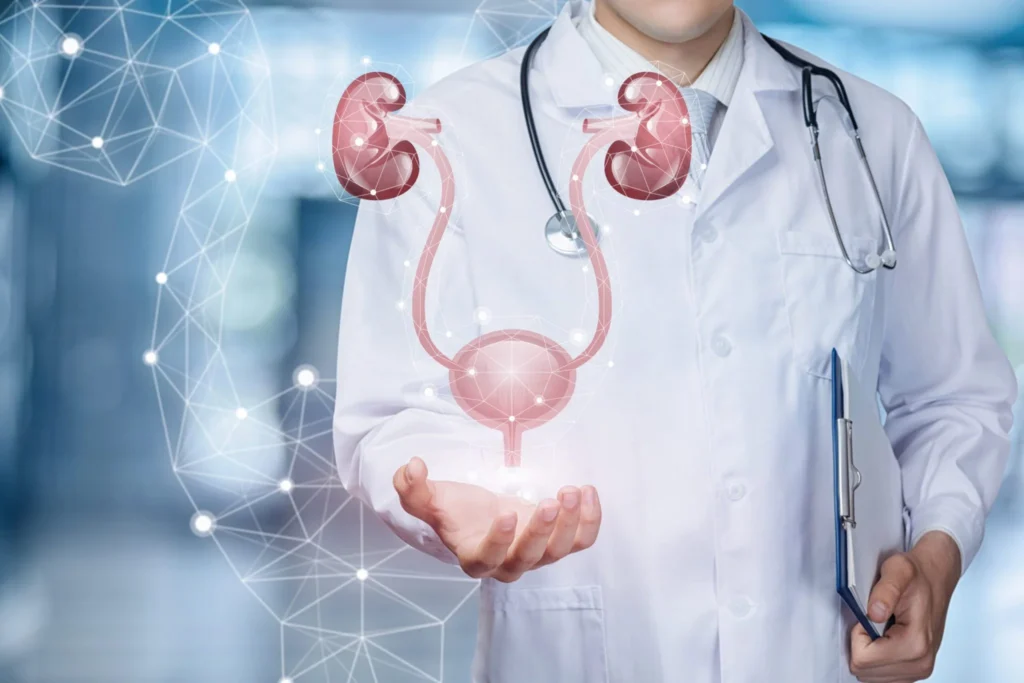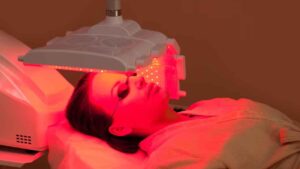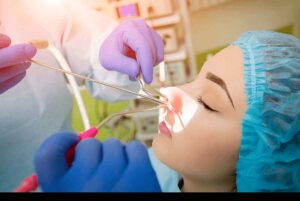Urology Clinic Singapore: What do they do for Men?

Urological health is a critical aspect of every man’s well-being. However, many men hesitate to visit their urologists until problems become severe.
You do not want to drag your feet when directed to visit a urology clinic in Singapore as this can lead to delayed diagnosis and failure to treat conditions that may impact your quality of life. If you’re wondering whether you need to see a urologist or what happens during a visit, this article breaks it down for you.
We’ll also show you the most common urological problems men deal with and how these specialists can help. Let’s begin!
Why Would a Male Need to See a Urologist?
Your general practitioner can help with the vast majority of issues that affect your health. So, it isn’t common to visit a urologist in Singapore. Most likely, you will need to see a urologist for issues related to your urinary or reproductive health. Here is a roundup of issues why a male would need to see a urologist;
- Prostate Health: Prostate issues are one of the main reasons men visit urologist. Conditions like an enlarged prostate (benign prostatic hyperplasia or BPH), prostatitis, and prostate cancer often require specialized care. Early consultation with a urologist can prevent these issues from worsening.
- Erectile Dysfunction (ED): Urologists are trained to diagnose and treat ED, which can result from physical conditions like diabetes, hormonal imbalances, or cardiovascular issues. They can also address psychological factors contributing to ED.
- Infertility: For men struggling with infertility, urologists can identify underlying causes like low sperm count, varicoceles, or hormonal imbalances. They offer treatments to improve fertility or suggest alternative options like assisted reproductive technologies.
- Urinary Issues: Frequent urination, pain during urination, or blood in the urine are symptoms that warrant a visit to a urologist. These symptoms may indicate infections, kidney stones, or more serious conditions like bladder cancer.
- Testicular and Penile Health: Urologists also address testicular pain, swelling, or lumps, which could signal conditions like testicular cancer, infections, or hernias. Issues affecting the penis, such as Peyronie’s disease (abnormal curvature), are also within their scope.
What Happens When a Man Goes to a Urologist?
Many people find visiting a urologist a little intimidating, especially if it is the first visit. Interestingly, the process is quite straightforward and designed to thoroughly address your concerns. Here’s what you can expect when visiting a urologist in Singapore;
1. Medical History Review
The first step of your visit will involve a detailed discussion of your medical history and any symptoms you’re experiencing. The urologist will ask about a variety of topics to understand your health better, including your urinary habits, such as frequency of urination, pain, or difficulty urinating.
They will also inquire about your sexual health and performance, asking about issues such as erectile dysfunction, painful intercourse, or changes in sexual desire. Importantly, they may ask about your family history of urological conditions, such as prostate cancer, kidney disease, or urinary tract disorders, as these can provide valuable clues about your risk for certain conditions.
2. Physical Examination
After reviewing your medical history, a good urologist in Singapore will conduct a physical examination to assess any visible or palpable abnormalities. This examination typically involves an assessment of the genital area to check for any lumps, swelling, or irregularities, such as testicular masses or hernias.
In men, the urologist will also perform a digital rectal exam (DRE), a procedure in which the doctor inserts a lubricated, gloved finger into the rectum to assess the size and texture of the prostate. Though the DRE may feel uncomfortable or awkward, it is a quick and essential part of the examination.
The prostate exam helps the urologist identify issues such as enlarged prostate (benign prostatic hyperplasia), prostate infections, or signs of prostate cancer. These tests are crucial for obtaining a clear picture of your health and guiding further diagnostic procedures.
3. Diagnostic Tests
Based on your symptoms and the findings from your physical exam, the urologist may recommend a variety of diagnostic tests to gather more information. Common tests include:
- Urine Tests: A urinalysis is often the first diagnostic tool used to detect infections, blood, protein, or other abnormalities in your urine. If you have frequent urination, blood in the urine, or discomfort while urinating, a urine test can help identify whether these symptoms are linked to an infection, stones, or another issue.
- Blood Tests: The urologist may order a blood test to check for elevated levels of prostate-specific antigen (PSA), a substance produced by the prostate. High PSA levels can indicate prostate enlargement, infection, or prostate cancer. Your doctor may also check kidney function, hormone levels, or markers for other conditions that could be affecting your urological health.
- Ultrasound or Imaging: In some cases, an ultrasound or other imaging tests like CT scans or MRIs may be necessary to get a clearer view of the kidneys, bladder, testicles, or other structures within the urinary and reproductive systems. These tests are non-invasive and can identify issues such as kidney stones, bladder tumors, or testicular masses.
- Urodynamic Tests: If you’re experiencing bladder control issues such as frequent incontinence or difficulty emptying your bladder, the urologist may recommend urodynamic tests. These tests measure how well your bladder and urethra store and release urine. It involves filling the bladder with a small amount of liquid and measuring the pressure inside the bladder while you urinate to check for issues like overactive bladder or urinary retention.
4. Treatment Plan
Once the urologist has gathered all the necessary information from your medical history, physical exam, and diagnostic tests, they will discuss a treatment plan tailored to your specific condition. The treatment options will vary depending on your diagnosis and could include a combination of approaches such as:
- Lifestyle Changes: For conditions like mild incontinence, benign prostatic hyperplasia, or frequent UTIs, the urologist may recommend lifestyle changes, such as dietary adjustments, exercise, or fluid management.
- Medications: For issues like erectile dysfunction, infections, or prostate enlargement, medications might be prescribed to help manage symptoms and improve quality of life.
- Minimally Invasive Procedures: For conditions like kidney stones, bladder problems, or prostate issues, your urologist may recommend non-surgical procedures like shockwave therapy, laser treatments, or urethral dilation to address the problem with minimal recovery time.
- Surgery: In cases where non-invasive treatments aren’t sufficient, surgery may be necessary. Procedures can range from prostate surgery for cancer or enlargement to kidney stone removal or vasectomy for permanent birth control.
In Closing
Urology clinics address issues that affect both the urinary and reproductive systems. They ensure that conditions are managed effectively and promptly.
Whether it’s prostate health, erectile dysfunction, or urinary concerns, seeing a urologist early can prevent complications and improve overall quality of life. If you’re experiencing symptoms or simply want to prioritize your health, don’t hesitate to book an appointment with a trusted urology clinic today. See details below;
Aare Urocare – One-Stop Incontinence Centre | Dr Fiona Wu | Kidney Stones Removal | UTI Vaccine Singapore
6 Napier Rd, #10-06 Gleneagles Medical Centre, Singapore 258499
+65 6252 4681







